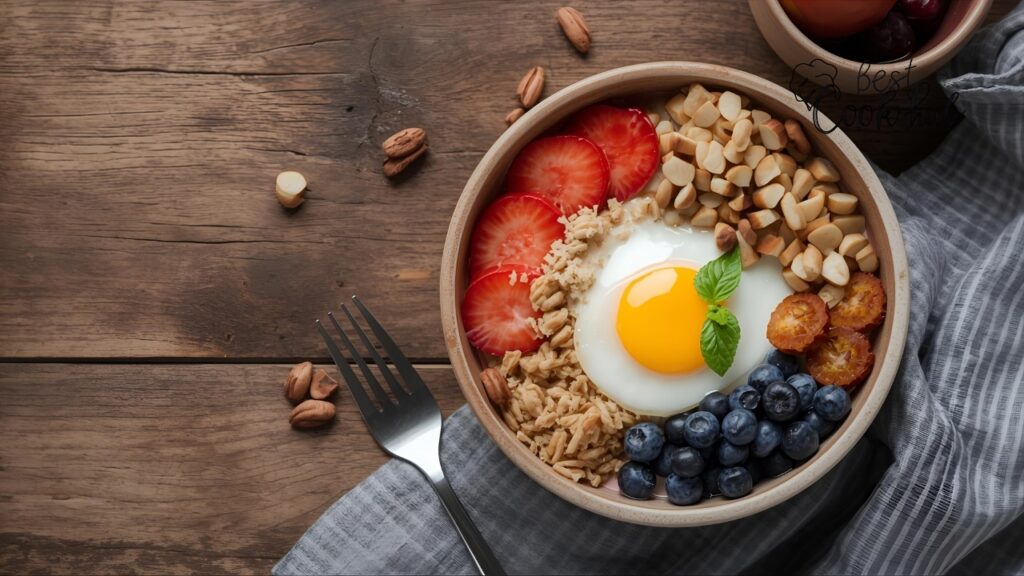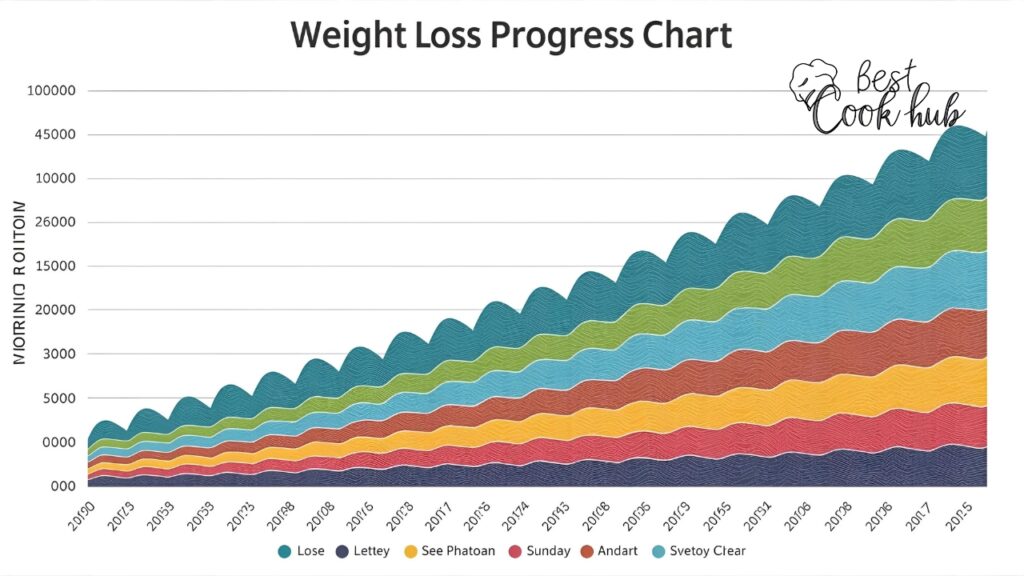
Introduction
Every weight loss journey begins with small daily habits. One of the most powerful, yet often underestimated, is a morning routine.
Why mornings? Because how you start your day sets the tone for everything else. What you do in those first few hours can shape your energy, focus, appetite, and mindset throughout the day.
This isn’t about extreme diets or intense workouts. It’s about realistic habits backed by science that can make weight loss easier and more sustainable.
Problem — Why Weight Loss Often Feels Hard
Many people begin their weight loss journey full of motivation. But after a few weeks, the energy fades. Why?
- Hunger spikes make it hard to stay on track.
- Cravings increase throughout the day.
- Skipping breakfast or rushing in the morning leads to overeating later.
- Lack of structure causes inconsistent results.
- Relying on motivation alone doesn’t work long term.
WHO statistics: Over 1.9 billion adults are overweight, and more than 650 million are obese worldwide. A big part of this is due to lifestyle patterns—not just food choices.
Your morning habits can either set you up for success or make the rest of the day an uphill battle.
Agitation — Why Typical Weight Loss Routines Fail
Let’s face it. Most weight loss plans are built on restrictive diets, intense gym sessions, or complicated hacks. These may give quick results but are hard to maintain.
Common issues with typical approaches:
- Skipping breakfast slows metabolism.
- Over-exercising without proper fuel leads to fatigue.
- Unplanned mornings lead to poor food choices later.
- Stress and lack of sleep increase appetite hormones like ghrelin.
A 2019 study in Obesity Reviews found that irregular routines increase the risk of weight gain by up to 30%.
Mornings are your best opportunity to build consistency.
Solution — Why Morning Routines Work for Weight Loss
Benefits of a structured morning routine:
- Improved metabolism through movement and balanced nutrition.
- Better appetite control throughout the day.
- Increased daily activity, which boosts calorie burn.
- Stable energy levels, reducing cravings.
- Lower stress, which helps manage emotional eating.
Harvard School of Public Health found that people who followed structured morning habits were 2.5 times more likely to sustain weight loss compared to those with no fixed routine.
The good news? It doesn’t require extreme changes. Just a set of simple, repeatable habits.

Science of Morning Habits and Weight Loss
Morning routines work because they impact key physiological processes:
- Boost metabolism: Light exercise and breakfast kickstart calorie burning.
- Control hunger hormones: Consistent routines help regulate ghrelin (hunger) and leptin (satiety).
- Support circadian rhythm: A steady sleep-wake cycle improves energy and reduces stress eating.
- Reduce decision fatigue: Having habits in place prevents poor food choices later.
Case Study:
A 2020 study in the Journal of Behavioral Nutrition and Physical Activity followed 520 adults over 6 months. Participants who adopted morning exercise and structured eating habits:
- Lost 5.6 kg on average
- Reported 22% fewer hunger spikes
- Maintained weight loss more consistently
Best Morning Routines for Weight Loss
1. Start with Hydration
Your body loses water overnight. Dehydration can mimic hunger.
- Action: Drink 1–2 glasses of water within 10 minutes of waking up.
- Why it works: A 2016 study found that drinking water before breakfast increased satiety and reduced calorie intake by 13%.
2. Get Natural Sunlight
Light exposure resets your body clock and boosts energy.
- Action: Spend at least 10 minutes outside after waking.
- Why it works: Morning light regulates cortisol levels, helping control appetite and metabolism.
3. Light Physical Activity
Exercise in the morning boosts fat oxidation and improves mood.
- Action: 20–30 minutes of brisk walking, yoga, stretching, or light strength training.
- Why it works: A 2019 Brigham Young University study showed morning exercisers ate 12% fewer calories throughout the day.
4. Eat a High-Protein, High-Fiber Breakfast
Skipping breakfast can lead to overeating later.
- Action: Include eggs, oats, Greek yogurt, chia seeds, or lean protein.
- Why it works: High-protein breakfasts reduce ghrelin and increase fullness.
Example Breakfast:
- Scrambled eggs with spinach + oats with berries + water.

5. Practice Mindful Breathing or Journaling
Stress impacts weight loss through cortisol.
- Action: Spend 5 minutes breathing deeply or journaling.
- Why it works: Cortisol regulation lowers stress eating triggers.
6. Plan Your Day
Decision fatigue leads to unhealthy food choices.
- Action: Outline meals, snacks, and exercise schedule in the morning.
- Why it works: Planned routines lead to higher adherence rates in weight loss programs.
Real Case Study — Morning Habits in Action
Case: University of Alabama, 2021
- 100 participants split into two groups:
- Group A: Adopted structured morning routine (hydration, sunlight, movement, breakfast).
- Group B: No structured routine.
Results after 12 weeks:
- Group A lost 6.1 kg on average.
- Group B lost 2.4 kg on average.
- Group A reported better energy and 30% fewer hunger spikes.
Conclusion: Simple morning habits can accelerate weight loss even without extreme diets.

Step-by-Step Sample Morning Routine (60 Minutes)
| Time | Action | Why It Helps |
|---|---|---|
| 6:30 AM | Wake up + drink water | Rehydrates, boosts metabolism |
| 6:40 AM | Go outside for sunlight | Regulates hormones |
| 6:50 AM | Light exercise (walk/yoga) | Burns fat, improves mood |
| 7:20 AM | Shower and get ready | Boosts alertness |
| 7:30 AM | Eat protein-fiber rich breakfast | Controls appetite, stabilizes energy |
| 7:50 AM | Journal or breathe mindfully | Reduces stress, supports focus |
| 8:00 AM | Plan meals and day | Reduces decision fatigue, improves adherence |
Best Morning Exercises for Weight Loss
You don’t need long, intense workouts. Simple movement works.
Top picks:
- Brisk walking (20–30 min)
- Light strength training
- Yoga or Pilates
- Bodyweight exercises (push-ups, squats, lunges)
- Dancing or cycling
A 2022 study in Frontiers in Physiology found that morning exercise increased fat burning efficiency by 15% compared to evening sessions.
Pro Tip: Do what you enjoy — consistency matters more than intensity.

Morning Nutrition Habits That Support Weight Loss
- Drink water before meals – Reduces calorie intake.
- Eat protein-rich breakfast – Keeps you full longer.
- Include fiber – Stabilizes blood sugar.
- Avoid sugary drinks early – Prevents energy crashes.
- Eat slowly and mindfully – Reduces overeating.
Example breakfast combos:
- Oats + chia seeds + banana
- Eggs + avocado toast
- Yogurt + berries + flaxseeds
American Journal of Clinical Nutrition (2016) found those who ate balanced breakfasts consumed 260 fewer calories daily.
Morning Mindset Shifts
Weight loss isn’t just physical — it’s also mental.
A good morning mindset:
- Builds consistency.
- Reduces stress eating.
- Improves decision making.
Morning mindset activities:
- Positive self-talk
- Gratitude journaling
- Goal visualization
- Breathing exercises
A 2018 study from Stanford University showed mindfulness reduced emotional eating by 28% in participants over 8 weeks.
Common Mistakes to Avoid in Morning Routines
- Skipping hydration
- Not eating anything at all
- Overdoing caffeine
- Intense workouts on an empty stomach without preparation
- Checking phone first thing (increases stress)
Avoiding these mistakes helps create a routine that lasts.
Beyond Weight Loss — Other Benefits of Morning Routines
Morning routines do more than help with weight loss:
- Better focus and energy throughout the day.
- Improved sleep cycles through circadian alignment.
- Better mood and reduced stress.
- Long-term habit building for health.
People who maintain healthy morning habits are more likely to sustain weight loss and avoid weight regain, according to a 2021 Harvard Health report.
Expert Opinions
Dr. Michelle Thompson, Nutrition Specialist:
“Morning routines are one of the most underused tools for weight management. Simple daily habits can create long-lasting change.”
Dr. Arjun Mehta, Sports Physiologist:
“Even 20 minutes of movement in the morning can improve metabolic flexibility and fat oxidation.”
Sample Weekly Morning Routine Plan
| Day | Hydration | Movement | Breakfast | Mindset |
|---|---|---|---|---|
| Mon | 2 glasses | Walk 30 min | Oats + berries + eggs | Gratitude journaling |
| Tue | 2 glasses | Yoga | Chia pudding + fruit | Breathing exercises |
| Wed | 2 glasses | Strength | Greek yogurt + seeds + toast | Visualization |
| Thu | 2 glasses | Walk 30 min | Smoothie + protein powder | Journal |
| Fri | 2 glasses | Stretching | Eggs + avocado | Mindful breathing |
| Sat | 2 glasses | Dancing | Oat pancakes + nuts | Gratitude |
| Sun | 2 glasses | Yoga | Light smoothie | Reflect and reset goals |

Final Thoughts
Weight loss doesn’t have to start with extreme diets or punishing workouts. It can start with something as simple as your morning routine.
A structured morning:
- Sets your mindset,
- Boosts your energy,
- Controls your appetite, and
- Builds the foundation for consistent habits.
Real change isn’t built overnight. It’s built every morning, one habit at a time.
Start tomorrow: hydrate, move, eat mindfully, and plan your day.
“Win the morning, win the day.”

FAQs
Early morning is great because it boosts metabolism and sets a positive tone for the day. But consistency matters more than the exact time.
Light exercise can be done fasted. For longer or intense workouts, a small protein-carb snack helps maintain energy.
Even 30–60 minutes is enough. The key is to build a routine that fits your lifestyle.
No. Morning habits support weight loss, but balanced nutrition throughout the day is essential.
Most people notice better energy and reduced cravings within 2–4 weeks, with gradual weight loss over time.
Leave a Reply